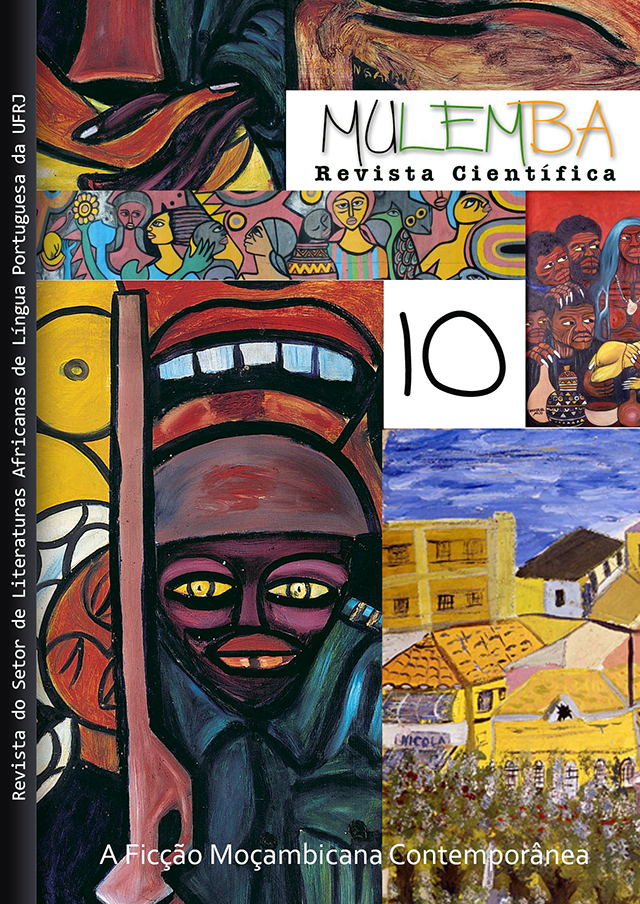DE GAZA AO ZAMBEZE: A REINVENÇÃO DA HISTÓRIA EM UALALAPI E CHORIRO, DE UNGULANI BA KA KHOSA
DOI:
https://doi.org/10.35520/mulemba.2014.v6n10a5002Keywords:
Ungulani Ba Ka Khosa, Moçambique, ficção, história, intertextualidade.Abstract
Ungulani Ba Ka Khosa, um dos principais ficcionistas moçambicanos dos séculos XX e XXI, começa seu passeio pelos caminhos tortuosos da recriação histórica ao revisitar o século XIX moçambicano e reconstruir a imagem de Ngungunhane, o último imperador de Gaza, com a publicação de Ualalapi em 1987. O temido “Leão de Gaza” tem sua aura heroica abalada pelo exercício da releitura crítica da História, o qual prevê a dessacralização do monumento. Em 2009, pouco mais de duas décadas após a publicação de Ualalapi, Khosa volta a visitar o século XIX moçambicano, deixando-se levar pelas águas do rio Zambeze, e encontra o fio condutor para a escrita do romance Choriro, protagonizado pelo português António Gregódio. O “branco-preto”, alçado pelo povo à condição de soberano, surge como um símbolo do projeto de reconfiguração histórica, que nasce de alguns registros soterrados. O presente trabalho busca discutir o processo literário de reconfiguração histórica, perpassado como é pelas singularidades do discurso da memória, enfatizando a importância dos exercícios da polifonia e da intertextualidade na articulação desse novo dizer.
PALAVRAS-CHAVE: Ungulani Ba Ka Khosa; Moçambique; ficção, história; intertextualidade.
Downloads
Published
Issue
Section
License
Authors who publish with this journal agree to the following terms:
- Authors retain copyright and grant the journal right of first publication with the work simultaneously licensed under a Creative Commons Attribution License that allows others to share the work with an acknowledgement of the work's authorship and initial publication in this journal.
- Authors are able to enter into separate, additional contractual arrangements for the non-exclusive distribution of the journal's published version of the work (e.g., post it to an institutional repository or publish it in a book), with an acknowledgement of its initial publication in this journal.
- Authors are permitted and encouraged to post their work online (e.g., in institutional repositories or on their website) prior to and during the submission process, as it can lead to productive exchanges, as well as earlier and greater citation of published work (See The Effect of Open Access).

